News
Economic downturn: We’ll not abandon Nigeria, Says ExxonMobil
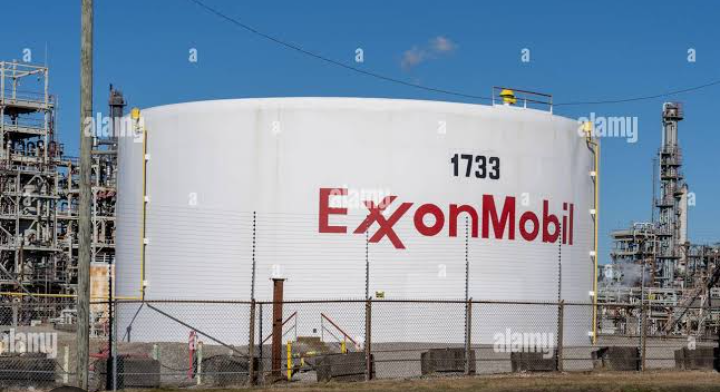
By Kayode Sanni-Arewa
The Managing Director, ExxonMobil Nigeria, Shane Harris, has declared that the oil major is not leaving Nigeria as claimed in some quarters, particularly after the oil firm’s proposed divestment of a 100 per cent interest in Mobil Producing Nigeria Unlimited to Seplat Energy Offshore Limited.
Harris, who disclosed this at a meeting with the Minister of State for Petroleum Resources (Oil), Senator Heineken Lokpobiri, in Abuja, stated that ExxonMobil is currently carrying out new investments in the oil and gas sector in Nigeria.
The Special Assistant on Media and Communications to the petroleum minister, Nneamaka Okafor, disclosed this in a statement issued in Abuja on Monday.
“During the meeting, Mr Harris hinted at significant new investments that ExxonMobil is injecting into Nigeria’s energy sector.
“He expressed confidence in the renewed relationship between ExxonMobil and the Nigerian government, assuring the government that the oil giant is not planning to leave Nigeria,” the statement read.
It further quoted the ExxonMobil boss as saying, “We are excited about the prospects these new investments bring. Our partnership with the Nigerian government is crucial for sustainable growth, and we look forward to continuing our collaboration as we have no plan to leave.
On his part, Lokpobiri reaffirmed the Federal Government’s commitment to enhancing production and fostering a conducive environment for investors in the energy sector.
He highlighted the ministry’s focus on creating collaborations and sharing innovative ideas with international oil companies, stating that “we are dedicated to ramping up production and ensuring a supportive environment for all investors by doing everything possible to maintain investor confidence in our country.”
Lokpobiri commended the ExxonMobil team for their commitment in the Nigerian oil and gas sector, noting that it aligned perfectly with the nation’s objectives.
“ExxonMobil’s planned investments are commendable and greatly appreciated. This renewed relationship is a testament to the mutual goals we share for the future of our energy sector,” the minister stated.
The statement added that the discussions by both parties also touched on the ministry’s support for international and independent oil operators.
Lokpobiri assured Harris of the government’s support, emphasising the importance of creating a thriving environment for all stakeholders.
We fully support ExxonMobil and other lOCs, just as we do with independent operators. Our collaborative efforts are key to the sustainable growth of our energy sector,” he stated.
On May 31, 2024, The reported that Nigeria might add 480,000 barrels to its daily crude oil output as the Nigerian National Petroleum Company Limited and ExxonMobil took a step towards resolving the disagreement surrounding the sale of the latter’s asset to Seplat Energy.
The report stated that NNPC confirmed it had signed a settlement agreement with ExxonMobil companies in Nigeria over the proposed divestment of a 100 per cent interest in Mobil Producing Nigeria Unlimited to Seplat Energy Offshore Limited.
This was after President Bola Tinubu announced his intervention in the debacle between NNPC and ExxonMobil hindering the sale of the assets to Seplat.
Lokpobiri said recently that Nigeria had lost about $30bn in the past two and a half years as a result of the unsuccessful divestment.
The minister expressed concerns that Nigeria was losing about 480,000 barrels of crude oil per day due to the Seplat/ExxonMobil crisis.
He said the asset was producing about 600,000bpd until the crisis began in 2022, saying the nation was losing millions of dollars daily.
The reported earlier that ExxonMobil and Seplat Energy had in 2022 announced a $1.6bn sales agreement deal that would see Seplat purchase ExxonMobil’s complete shares in the NNPC.
However, just when all hopes were high for the completion of the deal, a letter dated May 16, 2022, by the Nigerian Upstream Petroleum Regulatory Commission to ExxonMobil, stated that the deal could no longer hold because NNPC had exercised its right of pre-emption first refusal on the assets.
Right of pre-emption is a legal right to parties in a joint venture to be the first to be considered for any planned sale or takeover of assets in the JVs if either party chooses to trade them off.
According to reports, NNPC objected to the sale of ExxonMobil’s equity to Seplat and insisted on exercising its first refusal right after which the company reportedly made an offer above $1.6bn to ExxonMobil
But after about two years of litigation, there seems to be an end in sight to the crisis.
News
Your Best Days in Politics Are Still Ahead – Speaker Abbas Tells Kalu

By Gloria Ikibah
Speaker of the House of Representatives, Rep. Tajudeen Abbas, has hailed his Deputy, Rep. Benjamin Okezie Kalu, as a rising force in Nigeria’s political landscape, describing him as a man whose journey is only just beginning.
Abbas gave the remarks on Tuesday inside the chamber, shortly after plenary, as members of the House gathered to celebrate Kalu’s 54th birthday with a brief ceremony and a cake-cutting session.
Kalu, who represents Bende Federal Constituency of Abia State, turned 54 on Monday.
A lawyer by training and former spokesperson for the House, he has grown into a familiar face not just within Nigeria’s legislature but also across international parliamentary networks.
In recent times, Kalu has taken on significant continental and global responsibilities. He chairs the Finance and Administrative Committee of the ECOWAS Parliament and leads the African Union Parliament’s Committee on Monetary and Financial Affairs. He is also an active member of the Inter-Parliamentary Union and sits on the steering committee of the Parliamentary Conference on the World Trade Organization.
His colleagues describe him as strategic, forward-looking, and quietly ambitious, a lawmaker whose blend of eloquence and diplomacy has made him a respected voice both at home and abroad.
Speaking to journalists after the brief celebration, Abbas said, “Benjamin Kalu is not just a Deputy Speaker. He is a man with vision, poise, and the kind of political maturity that Nigeria will need even more in the years to come. His future is very bright.
News
Council poll: APC working on consensus candidates ahead of primaries

Lagos State chapter of the All Progressives Congress (APC) is working towards consensus candidates for the upcoming primary election scheduled for Saturday.
The move is part of the party’s efforts to maintain unity and reduce internal frictions.
Five aspirants emerged unopposed following the screening organised by the party.
The incumbent Chairman of Surulere Local Government, Sulaimon Yusuf; his counterpart in Iba Local Council Development Area (LCDA), Jubril Yisa; Motunrayo Alogba of Ijede LCDA and Kasali Bamidele in Lekki LCDA emerged unopposed. A new aspirant, Azeez Kareem, was the only person cleared to contest in Oto-Awori LCDA.
Chairman of the APC Lagos State Electoral Committee, Babatunde Ogala, SAN, in an interview with The Nation, disclosed that more aspirants had emerged unopposed following interventions from the party leaders.
He expressed optimism that many more aspirants would step down before the Saturday primary election.
“We are hoping to have at least 70 per cent consensus candidates going into the primary election. If we can achieve that, it will leave us with only 30 per cent to conduct primaries for,” he said.
According to him, the appeal committee, headed by Mr. Adeniji Kazeem, SAN, has been sitting for the past two days and has received over 100 petitions.
Ogala said the committee had treated over 70 of the petitions and would conclude their assignment today (Wednesday).
He explained that while the party had prepared for indirect primaries, involving delegates drawn from local government executives, efforts were ongoing at various levels to arrive at consensus candidacies in many wards.
He said electoral materials were being finalised for distribution by Saturday, with electoral officers already appointed to oversee the process in all 57 local councils.
Ogala said security had been fully arranged in collaboration with the police, DSS, civil defence and Lagos traffic officials to ensure order and smooth movement at the secretariats where the primaries were expected to take place.
According to him, the party is also scheduled to hold a key stakeholders’ meeting today with senior officials and aspirants to finalise agreements and chart the way forward.
News
$400m steel factory set to begin operations in Ogun
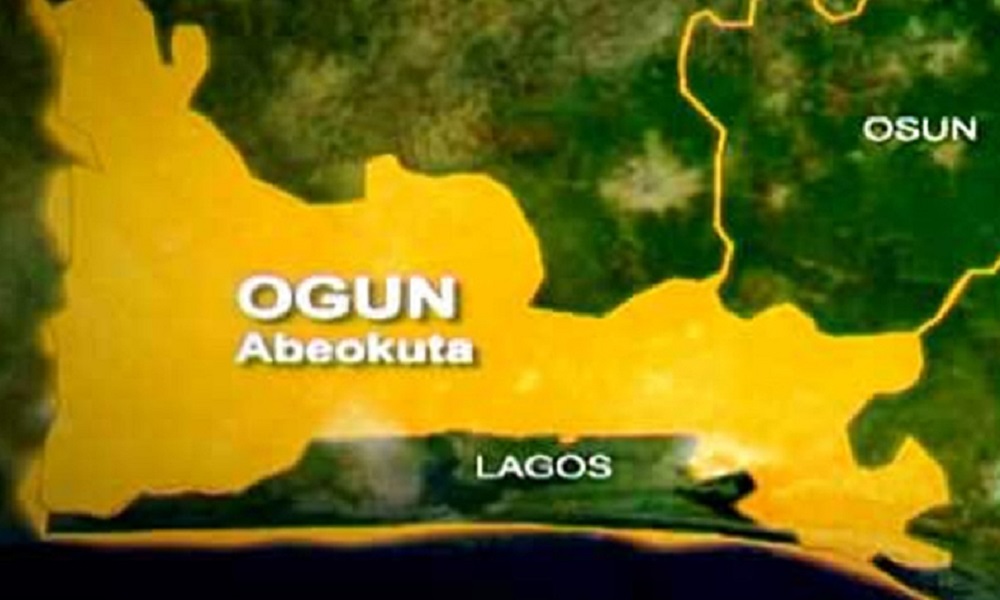
President of Inner Galaxy Group, Mr. Li Shuang, yesterday, disclosed that his company was ready to set up a $400 million hot rolled coiled steel factory with the capacity to employ about 6,500 direct and indirect workers in Ewekoro Local Government Area of Ogun State.
He made this known while leading a delegation of principal officials of the organization at the Governor’s Office located at Oke-Mosan, Abeokuta.
He added that the company is expected to commence operations in April 2026, saying the organization, a multinational company with vast investments in Asia, the Philippines, Malaysia, and some African countries like Ghana and Angola, entered the Nigerian market in 2005, producing iron rods for the building industry.
Governor Dapo Abiodun expressed delight in the huge investment, as he ascribed the success to his administration’s deliberate and intentional move to make the state the leading industrial hub in Nigeria and the West Africa sub-region.
“This is a $400 million investment; this aligns with the President’s vision to ensure that we grow this economy to a trillion dollars, and I think that you will be contributing your quota in achieving that. We are excited that you will also be employing people.
“I will be commissioning a multimillion-dollar diagnostic equipment facility during the week. This administration has managed to attract quite a lot of industries in the last six years,”
Abiodun noted that the state is blessed with abundant human and natural resources, adding that alluvial gold had been discovered in large quantities, just as the state has the highest quality of lithium.
-
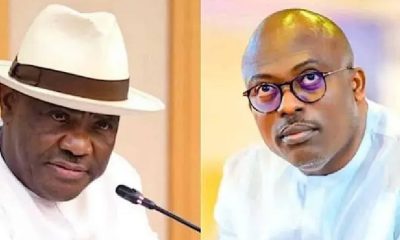
 Opinion19 hours ago
Opinion19 hours agoRIVERS, WIKE, FUBARA, AND THE WAY FORWARD
-

 Politics17 hours ago
Politics17 hours agoJust in: Delta PDP Reps members defect to APC
-

 News23 hours ago
News23 hours agoVDM may be released on Tuesday
-

 News20 hours ago
News20 hours agoNANS Barricades Lagos-Ibadan Expressway Over Alleged NELFUND Mismanagement
-
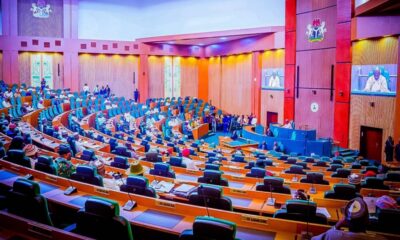
 News16 hours ago
News16 hours agoTension As Lawmakers Warns of Public Revolt Over Insecurity
-

 News20 hours ago
News20 hours agoCourt bans Nnamdi Kanu’s in-law from 3 proceedings over live streaming
-

 News15 hours ago
News15 hours agoEdo Speaker, Two Other Lawmakers, Formally Join APC
-
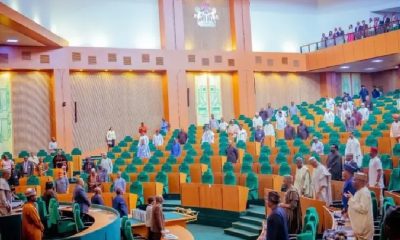
 News16 hours ago
News16 hours agoRep Raises Alarm After Deadly Attacks In Borno, Says Boko Haram Is Returning Stronger





